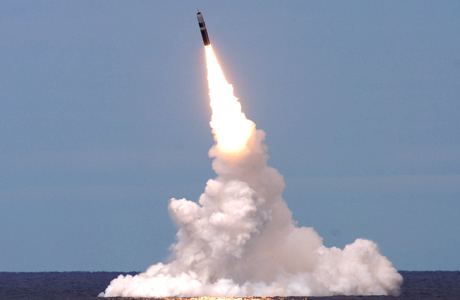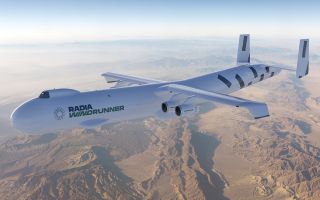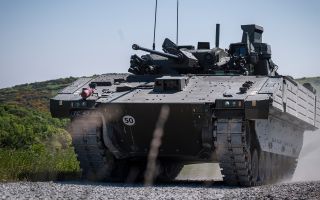
Britain's Trident System 'Safe From Cyber Attacks'

Britain's nuclear deterrent is protected from cyber attacks which targeted the NHS, according to Defence Secretary Michael Fallon.
Mr Fallon ruled out concerns over the threat of viruses on Trident operating systems.
The government had set aside more than £1.9 billion to tackle cyber threats, of which some £50 million went to the NHS, after an official security review highlighted hacks as a major threat, he said.
Mr Fallon told the BBC's Andrew Marr Show: "Our Vanguard submarines, I can absolutely assure you, are safe and operate in isolation when they are out on patrol, and I have complete confidence in our nuclear deterrent."
"I can assure you that the nuclear deterrent is fully protected."
Mr Fallon also defended the government's record on military recruitment as army numbers sat at 79,000, below the government's pledge of keeping the numbers at 82,000.
He said: "First of all we cannot force people to join the army, we don't have conscription in this country, the army has to compete with other sectors in the economy.
"I can assure you that we are spending a lot of money on recruiting but also on giving the armed forces the equipment they need."
Asked about defence spending, he rejected criticism of "accounting deceit", saying the UK's 2% spend was in line with NATO's target.
It comes as shadow defence secretary Emily Thornberry said Jeremy Corbyn now accepts the Labour party's support for NATO and has now accepted the will of the party that the transatlantic group was an essential part of the UK's foreign policy.
Meanwhile, the Liberal Democrats are promising to meet the NATO target of spending two per cent of GDP on defence, if elected into power, while former Lib Dem leader Lord Ashdown launched a petition to stop further cuts to the Royal Marines.
Mr Fallon then hinted at cuts to funding for military equipment, despite promises of "the biggest equipment programme in generations" over the next decade.
He said: "That is a ten-year programme and part of the cost of that programme has to come from efficiency savings, getting rid for example of land and barracks and buildings that we don't need, being more efficient in the way that we work."









